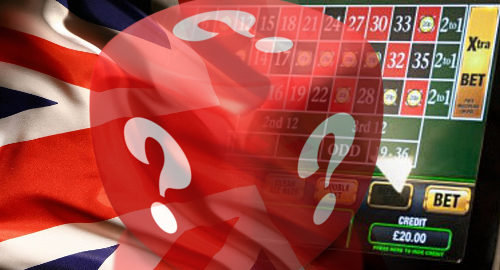 The UK government’s triennial review of the gambling industry has proven far less decisive than industry stakeholders had feared and gambling critics would have liked.
The UK government’s triennial review of the gambling industry has proven far less decisive than industry stakeholders had feared and gambling critics would have liked.
On Tuesday, the Department for Digital, Culture, Media and Sport (DCMS) released its hotly anticipated review of the nation’s gambling operators, the key planks of which were expected to include new rules for gambling advertising, greater responsible gambling protections and significant reductions in the maximum stakes of betting shops’ fixed-odds betting terminals (FOBT).
On the FOBT front, the review does recommend a reduction from the current £100 maximum stake to one of four possible options: £50, £30, £20 or £2. The minimum time between spins may also be boosted from its current 20 seconds to one minute “to better reflect roulette in a casino.”
But in true government form, despite having three years to make a decision, the DCMS now says it requires a further three-month consultation with stakeholders to determine the best way forward. This consultation will extend to January 23, 2018.
The review also stopped short of imposing new restrictions on gambling advertising, be it on television or via shirt sponsorships of football teams, in part due to studies showing that “the prevalence of advertising did not appear to be linked with the prevalence of problem gambling.”
The review notes that the UK’s problem gambling prevalence “has remained relatively stable below 1% of the adult population, despite a very significant rise in advertising” following the Gambling Act 2005. However, the government maintains that “more should be done by operators and others who benefit from gambling to minimize the risks to vulnerable people.”
The Committee for Advertising Practice (CAP) has promised to produce new guidance early next year to protect those at risk for problem gambling. The CAP is also working on dedicated guidance around social media gambling promotions and affiliate marketing that will be published by the end of this year.
The government intends to launch a “major” responsible gambling advertising campaign that will run for two years across all media platforms with an annual budget of between £5m and £7m. The GambleAware charity will lead this campaign, which will be funded by both land-based and online gambling operators, while broadcasters will be required to provide airspace and digital media.
This spring, GambleAware complained about some industry operators’ failure to contribute toward its funding requirements, and suggested a government-imposed mandatory levy wouldn’t be a bad idea. The DCMS review says it will consider imposing this levy “if the voluntary system fails to deliver.”
Reaction to the review has been predictably mixed, as operators with large retail operations express caution optimism that the FOBT curbs won’t be as severe as previously thought, while anti-gambling types are bemoaning the fact that there are no gambling CEO heads currently adorning pikes outside Parliament.
The next three months will likely bring ever more alarmist headlines in the Times, the Daily Mail and other reliably strident anti-gambling media outlets in order to pressure the government into inflicting the maximum pain on FOBT operators.





